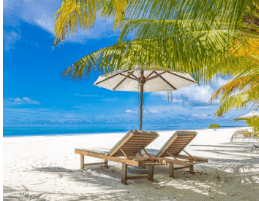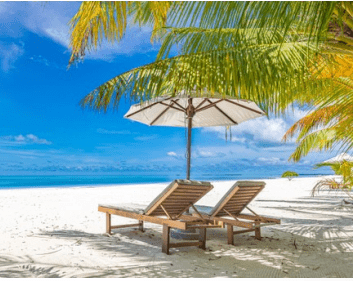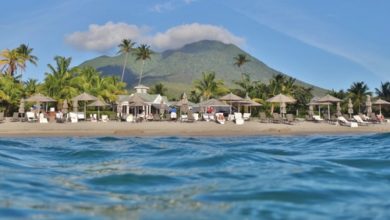The Impact of COVID-19 on the Caribbean Tourism Industry


COVID-19 arrived in the Caribbean in March, and with that, everything changed. As a result of the lack of tourism and the severe global downturn, many Caribbean nations are forced to look at alternatives to keep their economies afloat. For many, this may have meant incurring horrendous debts, putting themselves through a tough time in terms of their ability to repay their international debt obligations.
There’s little doubt 2020 will go down as one of the worst years in memory, especially in the Caribbean, because the island nations rely on tourism for 30% of their income. The International Monetary Fund is forecasting a 10.3% dip for tourist-dependent economies before a likely recovery in 2021, and even then, the growth figures are only at 4.8%.
The chances are that the Caribbean will look completely different at the other end of the COVID-19 pandemic, but it’s not all doom and gloom.
Luckily the Caribbean has one of the most fluid economies in the world. Most countries are small, and import their necessities, and depend on tourism to pay their way in the world. While Cuba, Trinidad and Tobago, Jamaica, Guyana, and Suriname export precious metals, oil, natural gas, bauxite, and nickel, these exports do not maintain the economy in any country’s entirety.
Among the Caribbean countries most dependent on tourists arriving by plane and cruise ships are Antigua, Aruba, Barbuda, the Bahamas, Belize, Barbados, and Dominica. The dependency on tourism has been fuelled by the wealthy U.S economy in recent years, leaving these islands in a very precarious position.
Aruba is the worst-hit country, with a minus 13.7% of real GDP (gross domestic product). The nation that is fairing the best is Guyana who is positive with 52.8% GDP and an inflation rate of 1.8%, which is high but not extortionate considering the circumstances.
So what makes Guyana different from the other island nations?
It seems that agriculture and mining are Guyana’s most important economic activities, with sugar, bauxite, rice, and gold accounting for a large percentage of export earnings – between 70 and 80%. Other exports include diamonds, timber, clothing and fabrics, rum, and pharmaceuticals. The value of these other exports is increasing.
The old saying seems to be true. You should never put all your eggs in one basket or, in this case, all your tourists in one resort. Diversification is essential and something the other nations would do well to take note of.
However, that’s easier said than done. In July of this year, Barbados announced a revolutionary 12-month residency permit to attract international remote workers or digital nomads to stay and work in the country for a year. On August 1, Bermuda launched a similar scheme, and the islands saw an immediate lift from those looking for an island escape.
They say necessity is the mother of invention, and these island nations certainly need some care. We will wait and see what 2021 holds for this beautiful part of the world.


